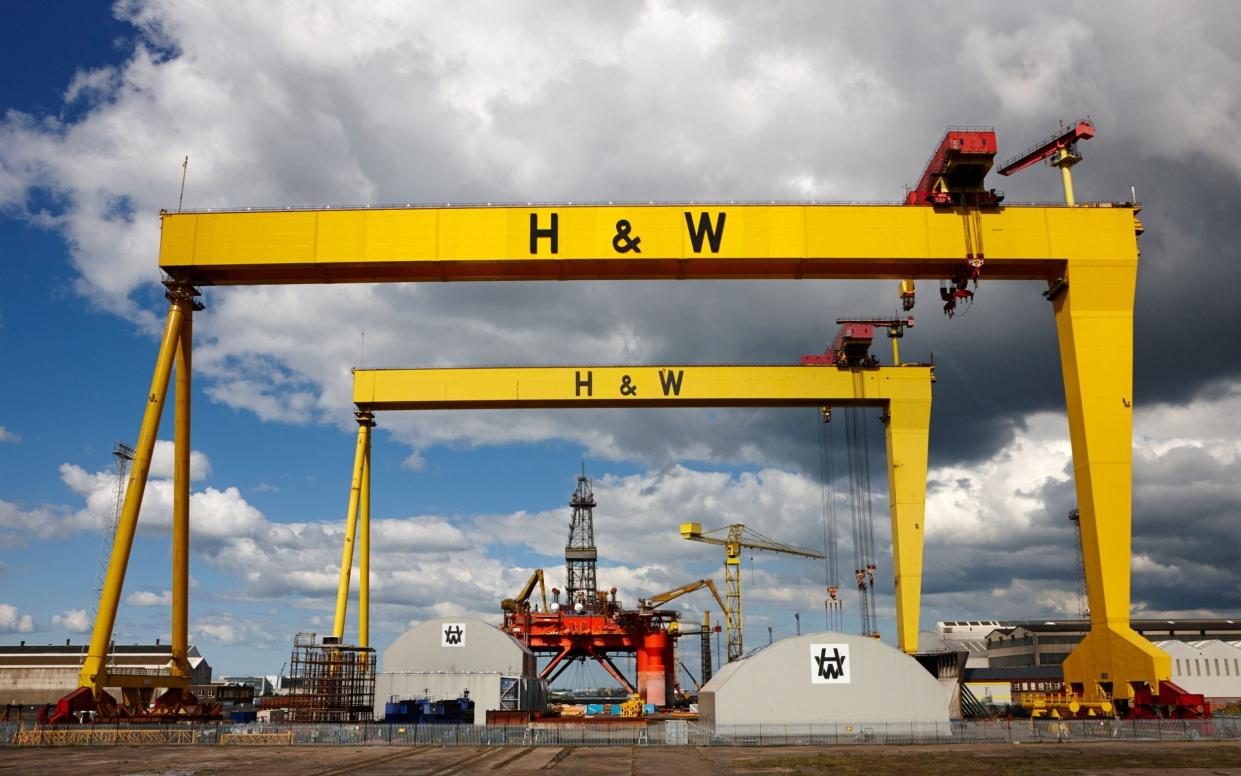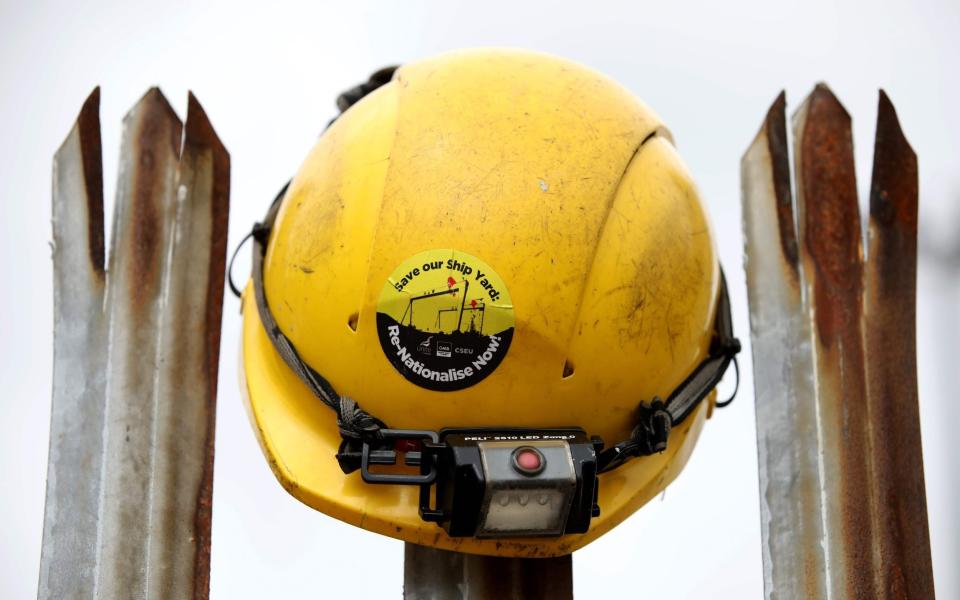Titanic shipyard takes $70m high-interest loan amid cash crunch

The Belfast shipyard that built the Titanic saw its cash reserves dwindle to as little as £233,000 last year before it agreed a high-interest loan of $70m.
Accounts show Harland & Wolff Group Holdings had £233,277 in cash at the end of last year, down from £6.7m in July 2020. It agreed to borrow $70m in March at an interest rate of 10.41pc that will rise in line with US interest rates.
The loan also allows the lender, a private equity firm, to buy up to 10.4m shares at a set price should it choose to.
Harland & Wolff’s expenses ballooned during the period covered by the accounts as it picked up new business, including a contract to build wind turbine parts and another to overhaul a warship. Its workforce jumped from 105 people in the middle of 2020 to 410 as a result.
The disclosures around its finances were made in the company's annual report, which also showed that chief executive John Wood charged the company £185,760 in fees for environmental consulting services and boat hire through a company he owns. The fees came on top of the £516,446 salary earned for the 17 month period the accounts covered.
The holding company posted a loss of £4.4m for the 17 months to the end of last year, up from £3.5m for the 12 months to the end of July 2020. Losses for the wider group, which includes its shipyards in Belfast and Devon and its factories for oil rig and wind farm parts in Scotland, ballooned from £10.4m to £25.5m.

Riverstone Credit Partners, the lending business of private equity house Riverstone, loaned the company $35m upfront, with an additional $35m available. The loans attract 9pc interest, plus an overnight lending rate based on US government borrowing, which takes the headline rate to 10.41pc.
Riverstone has the right to buy up to 10.4m Harland & Wolff shares, or about 6pc of the firm, at a price of 14.25 pence apiece. That is currently higher than the 11.74 pence at which the shares are trading, but the option will become significantly more valuable if the share price rises.
The loan expires in September next year, but the shipyard can extend it by up to 18 months for a fee of up to 2.5pc.
The loan is secured against “substantially all the assets of the company, including land, property, plant and machinery and receivables”, which includes its £55m project to overhaul a minesweeper vessel for the Lithuanian Navy, although the ship itself is owned by Lithuania.
The company is currently undergoing a growth spurt, it said. By the end of next year it wants sales to hit £100m and plans to be cash flow break even.
The shipyard is bidding to build the forthcoming replacement for HMY Britannia, the new Royal flagship nicknamed “Britain’s Air Force One” by its supporters.
Earlier this summer Harland & Wolff was ensnared in a row with HMRC over an unpaid tax bill, which culminated in a request to have part of its business shut down. The petition was withdrawn and H&W blamed a problem with its accounting system.

While the holding company’s cash reserves dwindled ahead of its loan infusion, the wider shipyard group, including the holding company’s subsidiaries, had £5.3m in cash. However, £4m of this was posted as collateral for its £26m deal to build eight wind turbine foundations for Italian firm Saipem.
The shipyard is positioning itself for a major return to the defence market and that its minesweeper contract meant it is “beginning to build its international profile within naval defence and has begun promising discussions with several NATO allies”.
Earlier this month it hired Russian-born banker Katya Zotova to its board.

